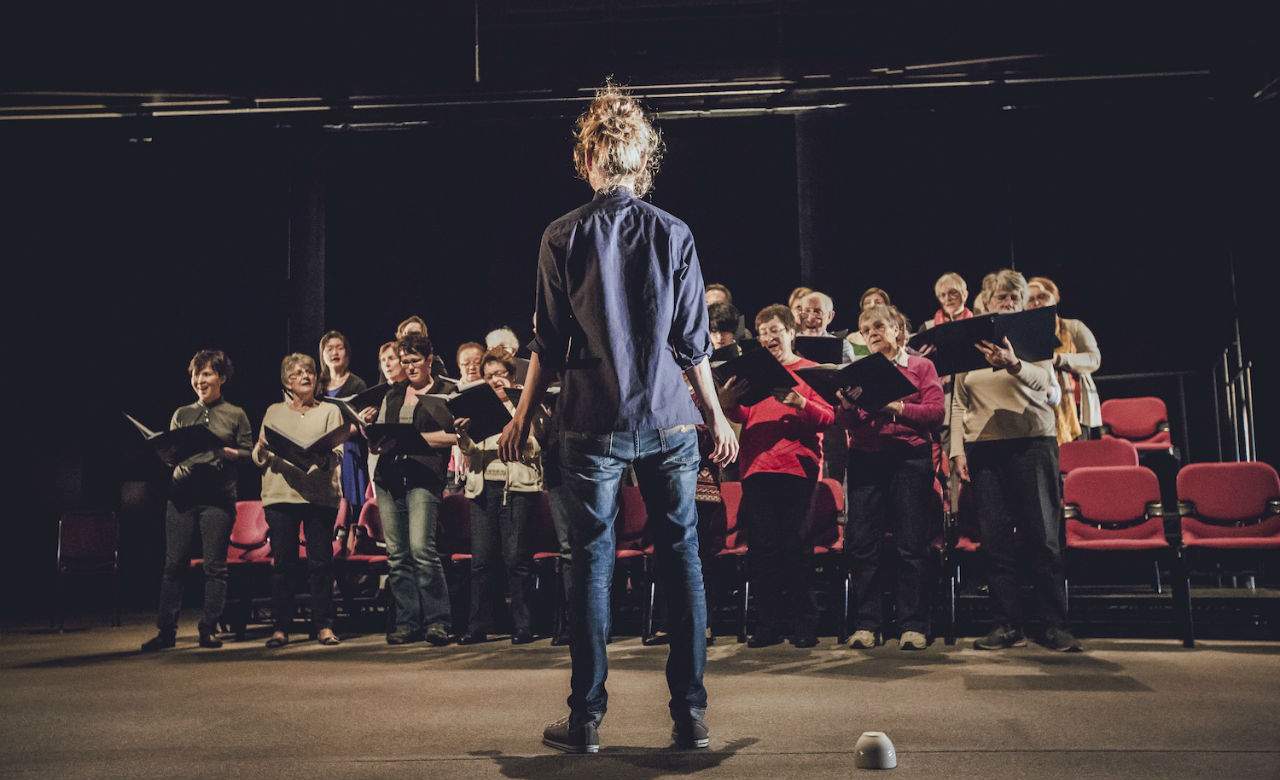The Events
The internationally acclaimed play that has polarised audiences worldwide.
Overview
Silo Theatre has developed a reputation for staging critically acclaimed, challenging contemporary plays. The Events, their third offering this year, follows this tradition. Scottish playwright David Greig wrote the play in 2013, impelled by the 2011 terrifying massacre on Norway's Utoya Island. Though the play is not implicitly about this particular event, it could be. It could traverse the emotional and psychological fallout following any of the tragic mass shootings that have happened in the past and continue to blight the news today.
Auckland's production of The Events is directed by Silo's artistic director Sophie Roberts and performed by a cast of two: the talented Beulah Koale (The Last Saint, Black Faggot, Shortland Street) and Tandi Wright (The Returned, Nothing Trivial, This is Not My Life), with accompaniment from 22 Auckland Choirs—a different one appearing each night. Claire, played by Wright, is a pastor at the local church, where she leads a multiculturally diverse community choir. Koale plays the role of the racist killer, simply referred to as The Boy, along with a host of characters, including Claire's girlfriend, a psychiatrist, The Boy's father and a right-wing politician.
The Boy, an anonymous figure obsessed with tribal warrior culture, is otherwise a stereotypical anti-social, loner type. One day, he walks into Claire's church and shoots the innocent choir during a rehearsal. Claire survives, but only just, by mere luck of the draw. The Events follows the aftermath of the shooting, focusing on Claire's spiritual crisis, as she clutches at possible explanations for the act. Was it evil, or a bout of madness? Her mental state and relationship unravel as she obsessively interrogates anyone who may hold a clue to The Boy's motives. Wright carries the burden with vulnerability and depth, as the narrative makes temporal leaps from points in time before, during and after the event. Koale is equally as skilful, often having to deal with erratic changes from one character to the next. To act out these roles night after night with the same precise intensity must be hugely draining, physically and emotionally.
To give the actors some relief, a spiritual back-up, a fresh choir guided by Robert Kelly, the repetiteur, joins the show every night, kicking off the performance with their song of choice, then follows a set list of hymns, with a bit of Flying Lotus and Kendrick Lamar thrown in for good measure. The choir discovers The Events as the play unfolds, echoing the audience in their expressions and responses to tense moments. Seeing their reactions is captivating, amusing, distracting. They add an element of unpredictability to every performance, but they also represent a chunk of the local population wherever 'the events' may take place, making the play's devastated community appear all the more real.
The Events poses a torrent of questions, but, appropriately, does not offer any answers in return. It is a play that is difficult to stomach, just like the many horrible events we see unfold globally each day. Sometimes it is frustrating and confusing, making it all the more important to see. I left the theatre with a few new difficult questions to ponder as I carry on with my daily life; what more could I hope to gain from experiencing a great work of art?





